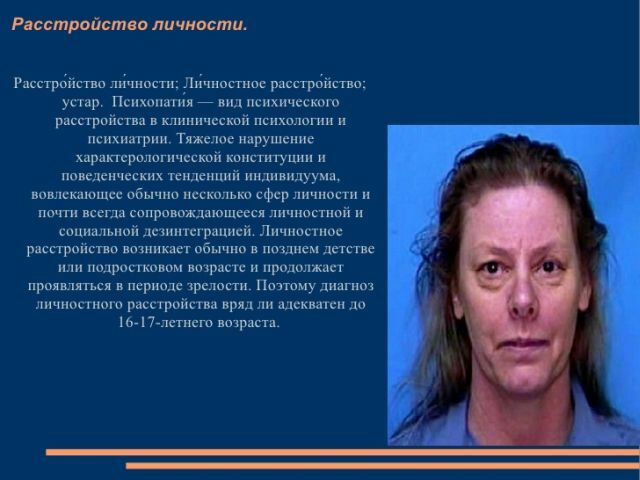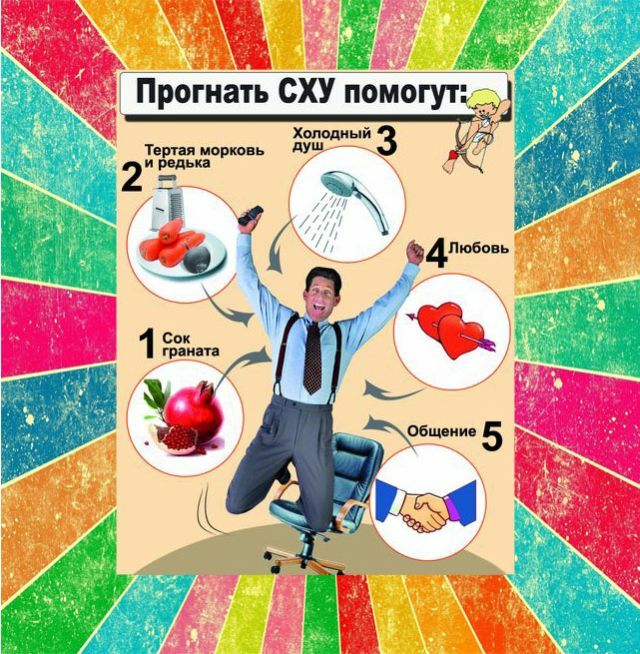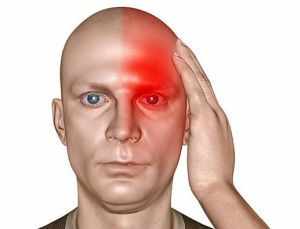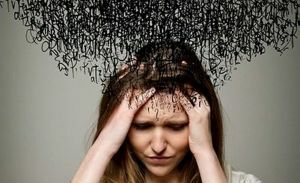 Psychosis includes severe mental disorders, which are characterized by behavioral changes and abnormal manifestations. In this state, a person is far from an adequate assessment of the surrounding reality, his consciousness is distorted, and excitability is often replaced by apathy.
Psychosis includes severe mental disorders, which are characterized by behavioral changes and abnormal manifestations. In this state, a person is far from an adequate assessment of the surrounding reality, his consciousness is distorted, and excitability is often replaced by apathy.
There are many types of this disorder, one of which is endogenous psychosis.
Characteristics and causes of the disorder
Endogenous psychosis is a type of mental disorder that is accompanied by increased nervousness and irritability of the patient, delusional disorders, hallucinations and memory impairment.
The following types of psychiatric disorders are classified as endogenous psychoses:
- schizophrenic disease;
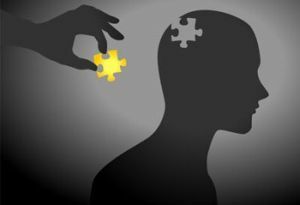
- paranoia;
- manic-depressive syndrome;
- genuine epilepsy;
- cycloid and senile psychosis;
- mental disorders of a symptomatic nature, caused by somatic diseases( eg, hypertensive and epileptic psychosis).
The reasons for this condition can not be precisely established, however, there are a number of factors that can provoke mental disorders of an endogenous nature.
Most often this occurs against the background of negative manifestations in the body: somatic and diseases of the neuroendocrine character, hereditary pathologies of the psyche and age-related changes. Often, psychoses make themselves felt in diseases associated with circulatory disorders in the brain. Also, this condition often accompanies epilepsy.
Also, one should not forget about the patient's predisposition to such conditions and the instability of the psyche of certain individuals.
Symptomatic features of
Clinical manifestations of psychoses with endogenous nature can be very diverse, but there are a number of the most common symptoms that allow to recognize the disorder in a timely manner:
- restless condition and uncaused irritability;
- hypersensitivity;

- manifestations of nervousness, fears and feelings for no apparent reason;
- memory disorders characterized by partial or complete amnesia;
- hallucinations and delirium;
- inadequate responses to the surrounding reality and various events;
- impaired coordination of movements;
- altered state of consciousness.
These symptoms can accompany various types of mental disorders, for this reason it is not easy to distinguish endogenous psychosis from another type of disorder due to similar symptoms.
Characteristic behavioral symptoms of
Most often, psychoses are characterized by a wave-like course of the disorder, when after the stage of exacerbation a complete or partial remission occurs. Basically, seizures occur spontaneously, but can be triggered by some psychogenic factors, for example, stress, physical and emotional fatigue, and sleep disorders.
In this condition, the patient is a danger and can harm himself or others around him. Manic-depressive psychoses are characterized by persistent, irresistible mania, obsessive thoughts about suicide and irritability. Then there is a sharp change in mood and depression. This is the main feature of the state.
The patient can also experience an inexplicable fear and anxiety, while the person does not assess his condition adequately and does not realize that he is unwell.
In most cases, such patients refuse treatment and hospitalization, considering themselves perfectly healthy. Sometimes relatives of 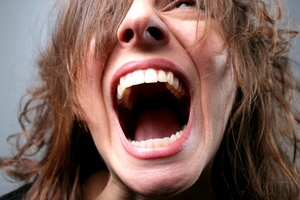 and close people find it difficult to convince such a patient of the need for medical care and it is almost impossible to cope with outbreaks of aggression on his part. However, it is impossible to leave a person in this state, he needs qualified treatment.
and close people find it difficult to convince such a patient of the need for medical care and it is almost impossible to cope with outbreaks of aggression on his part. However, it is impossible to leave a person in this state, he needs qualified treatment.
Attacks of endogenous psychosis are acute and chronic. In the first case, the disorder develops rapidly and unexpectedly, and after a few days a clinical picture of psychosis can be observed. Such attacks are relatively brief, last from 10-12 days to 2-3 months.
With chronic form of disorder, the patient stays in this state for 3 to 6 months. If this phase lasts more than 6 months, the attack is considered protracted.
Diagnosis and treatment of
Due to the fact that the symptoms of various psychoses are similar in many respects, it is only the psychiatrist who can diagnose the endogenous type of disturbance after a thorough examination of the patient's condition.
At the first manifestations of mental abnormalities, an urgent consultation of a specialist is needed. Trying to take independent measures or persuade a patient in this state should not, the effect is not, it is necessary to call an ambulance.
After the diagnosis is prescribed medication. As a rule, in these cases the following types of drugs are used:
- sedative drugs;

- antidepressants;
- psychotropic drugs( tranquilizers).
In addition to taking medications, the patient also needs psychotherapeutic treatments. Success directly depends on the correctness of the selected methods of therapy, as well as on how timely assistance has been provided. Therefore, do not delay the visit to the doctor if symptoms of the disorder occur.
Duration of treatment is approximately 2 months, but only if the help was provided on time. In a situation when the disease is started, the forecast is difficult to make, the process of recovery can last for an indefinite time.
Possible consequences of
If the diagnosis is made on time and a competent treatment is prescribed, the chances of a favorable outcome are very high. Symptoms of the disease disappear, often without leaving any serious consequences, after a while a person will be able to adapt to the surrounding reality and lead a full life.
But there are cases when even under condition of competent treatment and timely access for help, the person of the person undergoes changes.
 In this situation, there are peculiar "fallouts" of certain personal characteristics, for example, a person loses leadership qualities or initiative, and the attitude towards his beloved people becomes almost indifferent. This can lead to various violations in the social adaptation of man.
In this situation, there are peculiar "fallouts" of certain personal characteristics, for example, a person loses leadership qualities or initiative, and the attitude towards his beloved people becomes almost indifferent. This can lead to various violations in the social adaptation of man.
Endogenous psychosis can occur once in a lifetime, and after treatment is never repeated. But it is impossible to exclude the possibility of repeated attacks, they can acquire a permanent character and turn into a serious continuous disease.
The main differences between exogenous and endogenous psychosis
Exogenous psychoses are related to mental disorders on the background of pathological processes in the nervous system. If endogenous psychosis provokes various disorders, then exogenous processes provoke CNS diseases:
- head trauma;
- hormonal disorders;
- intoxication in acute and chronic form;
- neoplasms in the brain;
- infectious diseases and inflammatory processes in the CNS( neuroinfection, meningitis, encephalitis);
- disturbance of metabolic processes;
- beriberi;
- is a degenerative change in the brain.
Thus, based on a provocative reason, exogenous psychosis is divided into the following groups:
- intoxication;
- reactive;
- is infectious.
The clinical picture of exogenous disorders is similar in many respects to manifestations of other types of psychosis. However, for successful treatment, in addition to 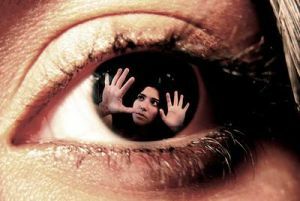 medication and psychotherapy, it is necessary to influence the cause of the disorder in order to eliminate the underlying disease. Otherwise, the seizures will be repeated on a regular basis.
medication and psychotherapy, it is necessary to influence the cause of the disorder in order to eliminate the underlying disease. Otherwise, the seizures will be repeated on a regular basis.
Like endogenous psychosis, an exogenous disorder can have a one-time character or, conversely, periodically manifest itself, and subsequently be transformed into a continuous disease.
The human psyche is a matter of little study by modern medicine, and therefore it is difficult to predict the consequences of mental disorders. But with the following rules, you can improve the effectiveness of treatment, thereby increasing the chances of success:
- does not attempt to treat a patient alone;
- at the first manifestations of mental illness seek medical help;
- in time to treat diseases and conditions that can cause such mental disorders.
The effectiveness of treatment largely depends on how quickly and correctly the necessary measures were taken, so do not ignore the alarming symptoms and postpone the visit to a specialist.

